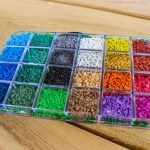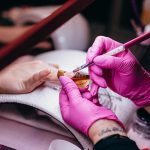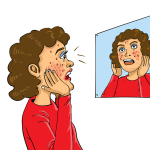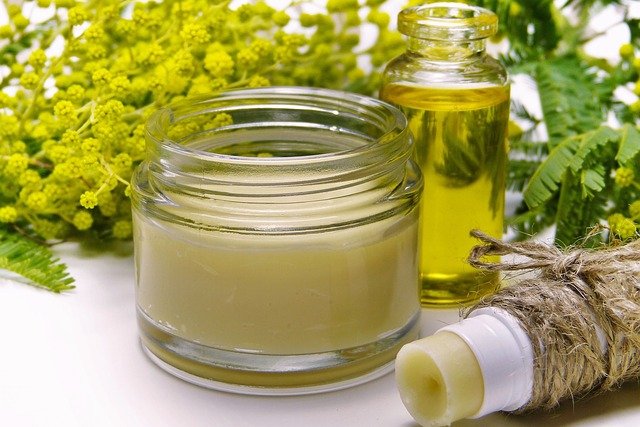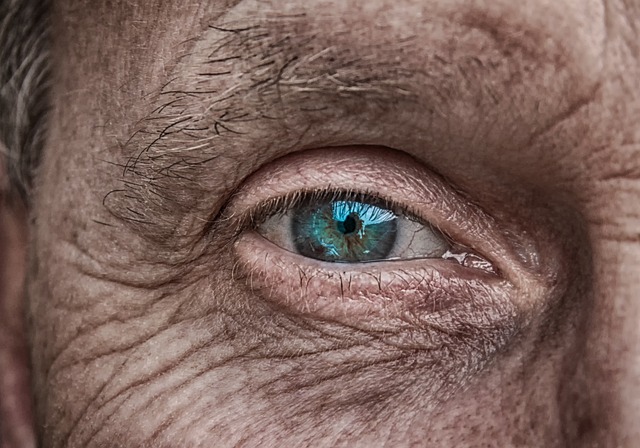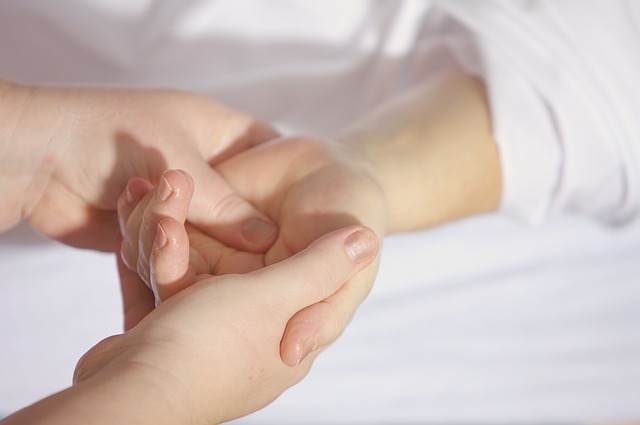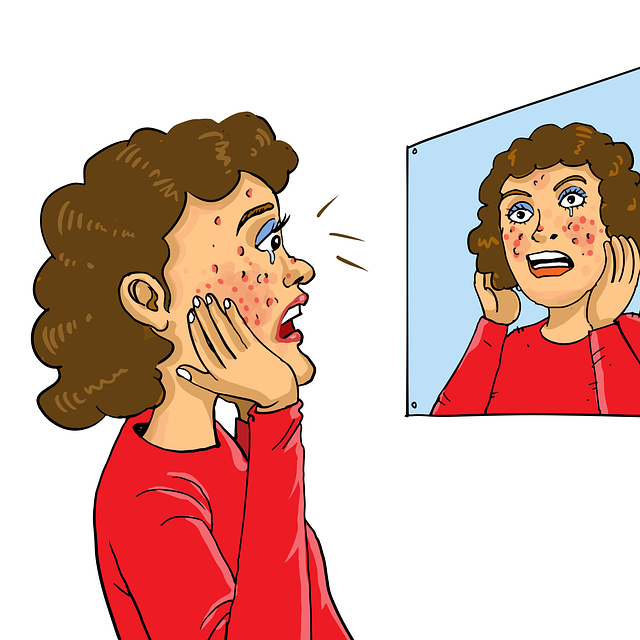Learn about the Skin’s Main Concerns and conditions as well
Although Everyone likes to have healthy and radiant skin. So it is always their primary goal when applying different remedies to their skin. However, numerous skin concerns can arise due to genetics, lifestyle, environmental factors, and ageing. We comprise a comprehensive guide or all kinds of details Skin’s Main Concerns you want.
I. Acne and Blemishes:
A. Establishing a Consistent Cleansing Routine:
1. So exercise the practice of gentle cleanser to remove excess oil, dirt, and impurities to improve the quality of your Skin’s Main Concerns.
2. Additionally try to avoid harsh scrubbing or abrasive products that can aggravate acne.
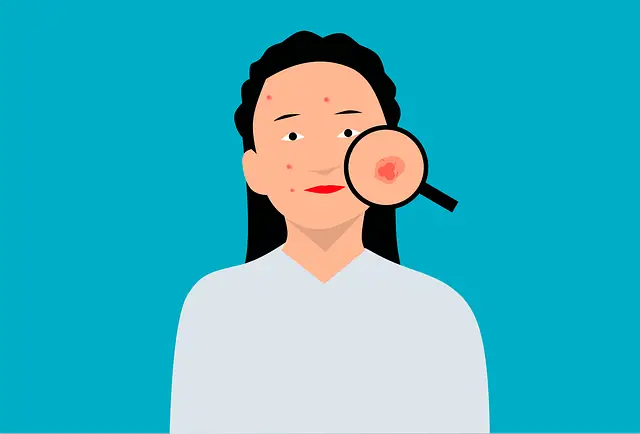
B. Incorporating Topical Treatments:
1. Consider using over-the-counter acne treatments with ingredients like benzoyl peroxide or salicylic acid.
2. Consult a dermatologist for prescribed medications or targeted treatments.
C. Maintaining a Healthy Diet and Lifestyle:
1. Consume a balanced diet of fruits, vegetables, and whole grains.
2. Avoid excessive sugar and processed foods that can contribute to inflammation.
3. Manage stress levels through practices like meditation or exercise.
II. Dryness and Dehydration:
A. Hydrating Cleansing Routine:
1. Use a mild, hydrating cleanser to avoid stripping the skin of natural oils.
2. Consider double cleansing to ensure thorough yet gentle cleansing.
B. Nourishing and Hydrating Products:
1. Apply a moisturizer with hydrating ingredients like hyaluronic acid or ceramides.
2. Consider using facial oils to lock in moisture and enhance hydration.
C. Protecting the Skin Barrier:
1. Use products with a pH-balanced formulation to maintain the Skin’s Main Concerns along with natural balance.
2. Avoid hot showers or excessive exposure to harsh weather conditions.
3. Apply a broad-spectrum sunscreen to shield the skin from UV damage.

III. Hyperpigmentation and Uneven Skin Tone:
A. Sun Protection:
1. Use sunscreen with a high SPF to prevent further darkening of hyperpigmented areas.
2. Wear protective clothing and accessories to minimize sun exposure.
B. Targeted Treatments:
1. To reduce hyperpigmentation, look for products that deal with Skin’s Main Concerns while containing vitamin C, niacin amide, or retinol.
2. Consult a dermatologist for professional treatments such as chemical peels or laser therapy.
C. Patience and Consistency:
1. Understand that treating hyperpigmentation takes time and consistently using appropriate products.
2. Be mindful of using gentle exfoliation to avoid further skin irritation.
IV. Aging and Wrinkles: A. Sun Protection and Antioxidants:
1. Apply sunscreen daily to prevent photo ageing and the formation of wrinkles.
2. Use skincare products with antioxidants like vitamin C or green tea extract to counteract free radical damage.

B. Retinoid and Peptides:
1. Consider incorporating retinol or retinoid-based products to improve skin texture and reduce fine lines.
2. Look for products containing peptides to boost collagen production and firm the skin.
C. Facial Massage and Muscle Relaxation:
1. Practice facial massage techniques to stimulate blood circulation and improve skin tone.
2. Reduce repetitive facial movements and expressions to prevent the formation of wrinkles.
Taking care of our skin and addressing its main concerns requires a holistic approach that includes a consistent skincare routine, healthy lifestyle choices, and targeted treatments. By understanding the specific needs of our skin and incorporating appropriate products and practices, we can achieve healthier.
What Are the Most Common Skin’s Main Concerns after 40?
As individuals age, their skin changes, and certain skin concerns become more prevalent.
1. Wrinkles and Fine Lines: The natural ageing process leads to a decrease in collagen and elastin production, resulting in the formation of wrinkles, fine lines, and creases on the skin, especially around the eyes, forehead, and mouth.
2. Loss of Firmness and Sagging: The skin’s underlying support structure weakens with age, causing a loss of elasticity and firmness. This can lead to sagging skin, particularly in areas like the cheeks, jawline, and neck.
3. Age Spots and Hyperpigmentation: Over time, cumulative sun exposure can develop age spots, also known as sunspots or liver spots. Additionally, hyperpigmentation may become more pronounced, leading to uneven skin tone and discolouration.
4. Dryness and Dehydration: Due to ageing our skin produces fewer natural oils, increasing dryness and moisture loss. This could result in rough, flaky, and dull-looking skin.
5. Thin and Fragile Skin: The skin becomes thinner and more delicate as we age, making it prone to bruising, tearing, and increased sensitivity.
6. Uneven Texture: When we have rough and uneven skin texture, with rough patches, enlarged pores, or a dull complexion.
7. Redness and Rosacea: Some individuals may experience increased facial redness or the development of rosacea, persistent redness, and visible blood vessels.
8. Volume Loss: As we age, there is a gradual loss of facial fat and volume, resulting in a sunken or hollowed appearance in certain areas, such as the cheeks or temples.
9. Eye Area Concerns: Fine lines, wrinkles, puffiness, dark circles, and drooping eyelids become more common with age, giving a tired or aged appearance to the eyes.
10. Skin Sensitivity: Aging skin can become more sensitive and reactive to certain skincare products, environmental factors, or irritants.
Noted
It’s important to note that while these Skin’s Main Concerns are commonly observed in individuals over 40, everyone’s skin is unique, and individuals may experience these concerns to varying degrees. Additionally, a well-rounded skincare routine focusing on hydration, sun protection, gentle cleansing, and targeted anti-ageing products can help address these concerns and promote healthier, more youthful-looking skin.
How many kinds of Skin Main Concerns do we have?
Although, there are numerous kinds of Skin’s Main Concerns that individuals may experience. So we can summarize some of the common skin concerns:
- Acne: This is the situation on our skin when we have pimples, blackheads, whiteheads, or cysts caused by excess oil production, clogged pores, and bacteria.
- Dryness: The skin lacks moisture and feels tight, rough, or flaky due to environmental conditions, genetics, or inadequate hydration.
- Oily Skin: The skin that produces excessive oil production produces shiny complexions, enlarged pores, and a predisposition to acne breakouts.
- Combination Skin: There are significant benefits for the skin when used combined on oily and dry areas on the face, with some regions exhibiting excess oiliness while others are dry or normal.
- Sensitivity: Skin that is easily irritated, prone to redness, itchiness, or reactions to specific products, environmental factors, or allergens.
- Hyperpigmentation: For specific darkened patches or spots on our skin caused by an overproduction of melanin, which can result from sun exposure, acne scarring, hormonal changes, or inflammation.
- Uneven Skin Tone: Discoloration or uneven skin colour or tone, which sun damage, pigmentation issues, or genetic factors can influence.
- Wrinkles and Fine Lines: Natural signs of ageing characterized by the appearance of lines, creases, or folds on the skin due to decreased collagen and elastin production.
- Sagging Skin: When we have a loss of skin elasticity and firmness, leading to drooping or sagging of facial features or body areas over time.
- Redness or Rosacea: Persistent redness or flushing of the skin, often accompanied by visible blood vessels, sensitivity, or pustules.
- Dark Circles: Shadows or discolouration under the eyes caused by genetics, lack of sleep, stress, or ageing.
- Sun Damage: This happens just because prolonged exposure to harmful UV rays leads to sunburn and premature ageing.
- Scarring: When you observe some kind of marks or indentations on the skin resulting from injuries, acne, surgeries, or other trauma, which can vary in appearance and severity.
- Enlarged Pores: Visible and often enlarged openings on the skin’s surface, primarily on the nose, cheeks, and forehead, caused by excess oil production and genetics.
- Eczema or Dermatitis: Inflammatory skin conditions characterized by red, itchy, and dry patches, often triggered by allergies, irritants, or genetic factors.
Noted
It’s important to note that individuals may experience a combination of these concerns, and each person’s skin is unique. Identifying specific skin concerns helps select appropriate skincare products, treatments, and routines tailored to address individual needs effectively.
How About the Skin’s Main Concerns and conditions like acne, eczema, and rosacea?
Skin conditions can significantly impact an individual’s quality of life and require careful management to alleviate symptoms and maintain skin health. Three common skin conditions are acne, eczema, and rosacea. Each condition has distinct characteristics and treatment approaches.
1. Acne: This kind of skin condition is comprised of pimples, blackheads, whiteheads, or cysts. Usually, this happens when hair follicles become clogged with oil, dead skin cells, and bacteria. Acne can occur during adolescence due to hormonal changes and affects adults. Genetics, hormonal imbalances, stress, and certain medications can contribute to acne. Treatment options include over-the-counter topical treatments, prescription medications (such as antibiotics or retinoids), and lifestyle modifications. Gentle cleansing, avoiding excessive oil-based products, and good skincare habits are essential for managing acne.
2. Eczema: This chronic inflammatory skin condition results in red, itchy, and dry patches. It often develops in childhood and can persist into adulthood. Also, it is believed to have a genetic component associated with immune system dysfunction and impaired skin barrier function. Triggers such as allergens, irritants, stress, and climate changes can exacerbate symptoms. Managing eczema involves keeping the skin moisturized, avoiding known triggers, using gentle and fragrance-free skincare products, and using prescribed topical medications (such as corticosteroids or immunomodulatory) during flare-ups.
3. Rosacea: Rosacea is a chronic inflammatory skin condition primarily affecting the face. It is characterized by visible blood vessels and, occasionally, tiny bumps or pimples. No research found its exact reason, but factors like genetics, abnormal blood vessel function, and an overactive immune response may contribute to its development. Triggers such as sunlight, hot beverages, spicy foods, alcohol, stress, and certain skincare products can worsen symptoms. Treatment for rosacea focuses on managing triggers, gentle skincare, sun protection, and prescription medications (such as topical creams, oral antibiotics, or laser therapy) to reduce inflammation and control symptoms.
Noted
Individuals with these skin conditions must work closely with dermatologists or healthcare professionals to develop a personalized treatment plan. Lifestyle modifications, proper skincare routines, and understanding and avoiding triggers are crucial in managing these conditions effectively and improving overall skin health and well-being.
What are facial problems while dealing with Skin’s Main Concerns?
As by define we can Skin’s Main Concerns refer to numerous issues or concerns that can affect the face’s appearance, health, or function. That reason we can categorize all such types of issues can range from cosmetic concerns to more serious medical conditions. Here are some common facial problems:
1. Acne: The reason behind the presence of pimples, blackheads, whiteheads, or cysts on the face iss caused by factors like excess oil production, clogged pores, bacteria, or hormonal imbalances.
2. Rosacea: A chronic inflammatory condition characterized by facial redness, flushing, visible blood vessels, and, occasionally, tiny bumps or pimples.
3. Hyperpigmentation: Darkened patches or spots on the skin, often caused by an overproduction of melanin due to factors such as sun exposure, hormonal changes, or inflammation.
4. Fine Lines and Wrinkles: Natural signs of ageing, resulting in lines, creases, or folds on the face, typically due to decreased collagen and elastin production.
5. Dryness and Dehydration: When the skin lacks moisture, leading to tightness, flakiness, or rough texture on the face.
6. Oily Skin: Due to excessive oil production results in a shiny complexion, enlarged pores, and a predisposition to acne breakouts.
7. Dark Circles and Puffy Eyes: Commonly found shadows or discolouration under the eyes, often accompanied by puffiness or swelling, caused by genetics, lack of sleep, or ageing.
8. Facial Hair: Unwanted hair growth on the face, which can occur due to hormonal changes, genetics, or certain medical conditions.
9. Scarring: This kind of situation when we have some sort of marks or facial indentations resulting from injuries, acne, surgeries, or other trauma.
10. Facial Sagging: Loss of skin elasticity and firmness leads to sagging or drooping of facial features due to ageing or weight loss.
11. Uneven Skin Texture: This phase is when we find our skin bbecomesrough or uneven surface, with bumps, rough patches, or enlarged pores on the face.
12. Facial Redness or Flushing: The persistent redness or flushing on our face, often associated with conditions like rosacea or sensitive skin.
13. Facial Swelling or Edema: This is when abnormal fluid retention or swelling in the facial tissues, which various factors, including allergies, infections, or medical conditions, can cause.
14. Skin Sensitivity: Due to high sensitivity reason behind enhancing the facial skin reactivity or sensitivity to specific products, environmental factors, or irritants.
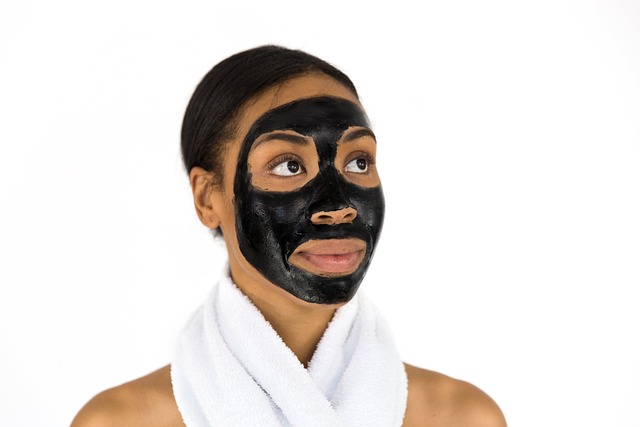
It’s important to note that the severity and impact of these facial problems can vary from person to person. Some concerns may be temporary or minor, while others may require medical intervention or professional treatment. Also keep in mind that it’s highly advisable to consult with a dermatologist or healthcare professional for proper diagnosis, guidance, and treatment options tailored to individual needs.
How about sun protection to deal with Skin’s Main Concerns
That is a crucial but most important aspect in the category of Skin’s Main Concerns while playing a significant role in maintaining the appearance of the skin. Also, excessive sun exposure can lead to various issues, including sunburn, premature ageing, hyperpigmentation, and an increased risk of skin cancer. Briefly some important truths about it
1. Sunscreen: This is highly advisable to use on regular use of broad-spectrum sunscreen is essential. So usually, it is advisable to choose a sunscreen that participates with the Sun Protection Factor (SPF). However,f ollow the same instructions as iin thecase of other lotions. Use it with a gentle and soft hand, especially in other areas not covered by clothing.
2. Sun Protection Accessories: Besides sunscreen, Don’t forget to use other sun protection measures, which include wearing protective clothing, wide-brimmed hats, and sunglasses with UV protection. These items can provide additional physical barriers against harmful UV rays.
3. Seek Shade: Avoid sun exposure in the peak hours if possible, or limit it when the sun is strongest (typically between 10 a.m. and 4 p.m.), which can reduce the risk of sun damage. Also Seeking shade under trees, umbrellas, or other protective structures outdoors.
4. Sun Protective Clothing: Wear clothing with built-in sun protection, such as UPF (Ultraviolet Protection Factor). Because all such typess of garments are designed to block UV rays and work as an extra layer of protection for the skin.
5. Be Mindful of Reflection: Always take extra precautions in these environments and ensure proper sun protection measures are in place.
6. Avoid Tanning Beds: Tanning beds emit harmful UV radiation that can be as damaging as the sun. So try to avoid using tanning beds to protect the skin from unnecessary UV exposure.
7. Regular Skin Checks: Oa n regular basis skin self-examinations to monitor for changes, new moles, or suspicious spots. So it’s easy to find, if notice any concerning skin changes, consult a dermatologist for a professional evaluation.
8. Stay Hydrated: Proper hydration is essential for maintaining healthy skin. Advisable to take water as much as possible to keep the skin hydrated and support its natural functions.
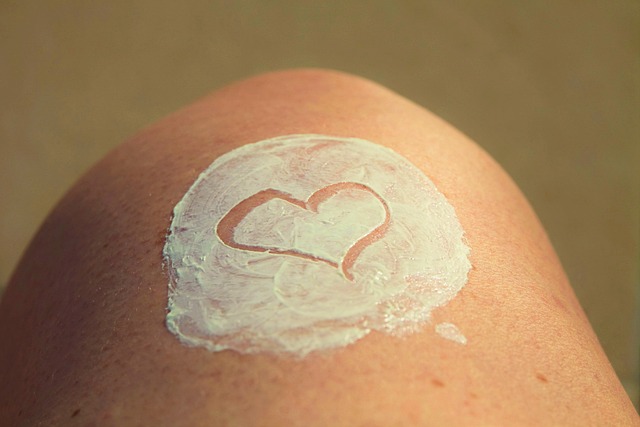
Noted
Remember, sun protection should be practised year-round, as the sun’s rays can penetrate clouds and cause damage even on overcast or cooler days. By incorporating sun protection into your daily skincare routine and adopting sun-safe habits, you can get the best protection for your skin to maintain its health and vitality in the long run.
All information material is in copyright protection, so it is mandatory to share along with an acknowledgement to “almost buy.com




